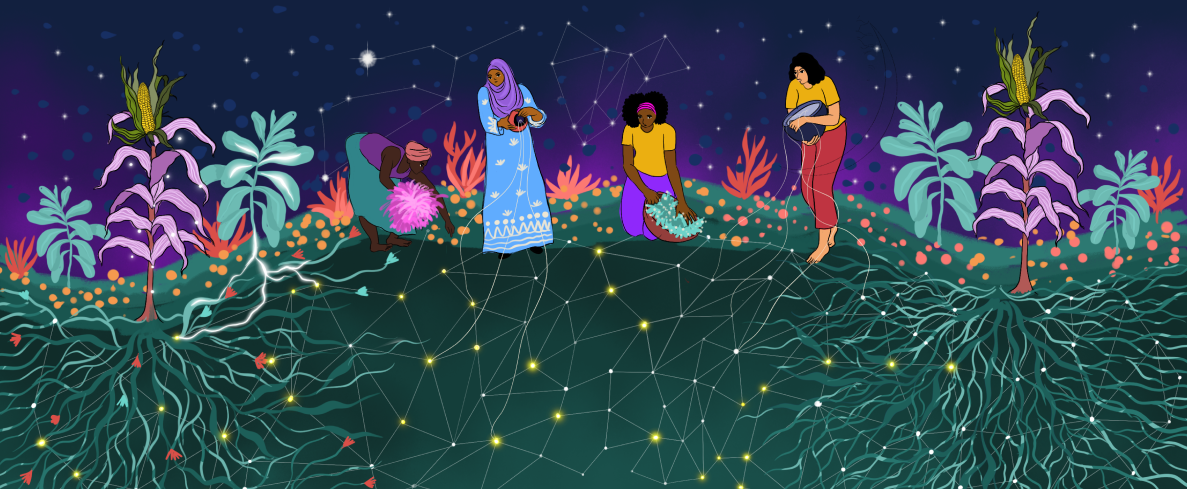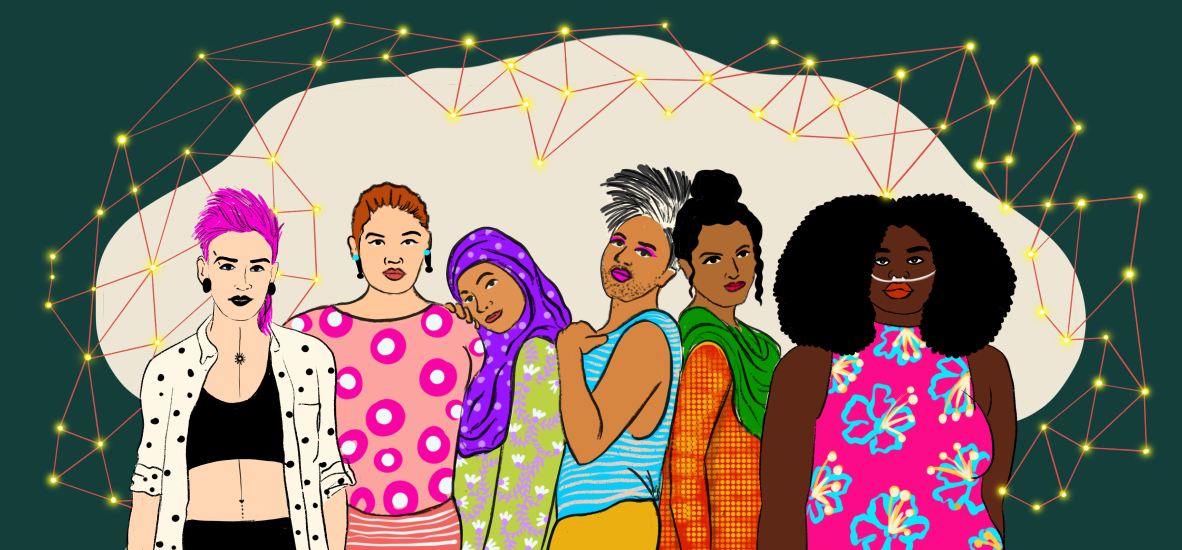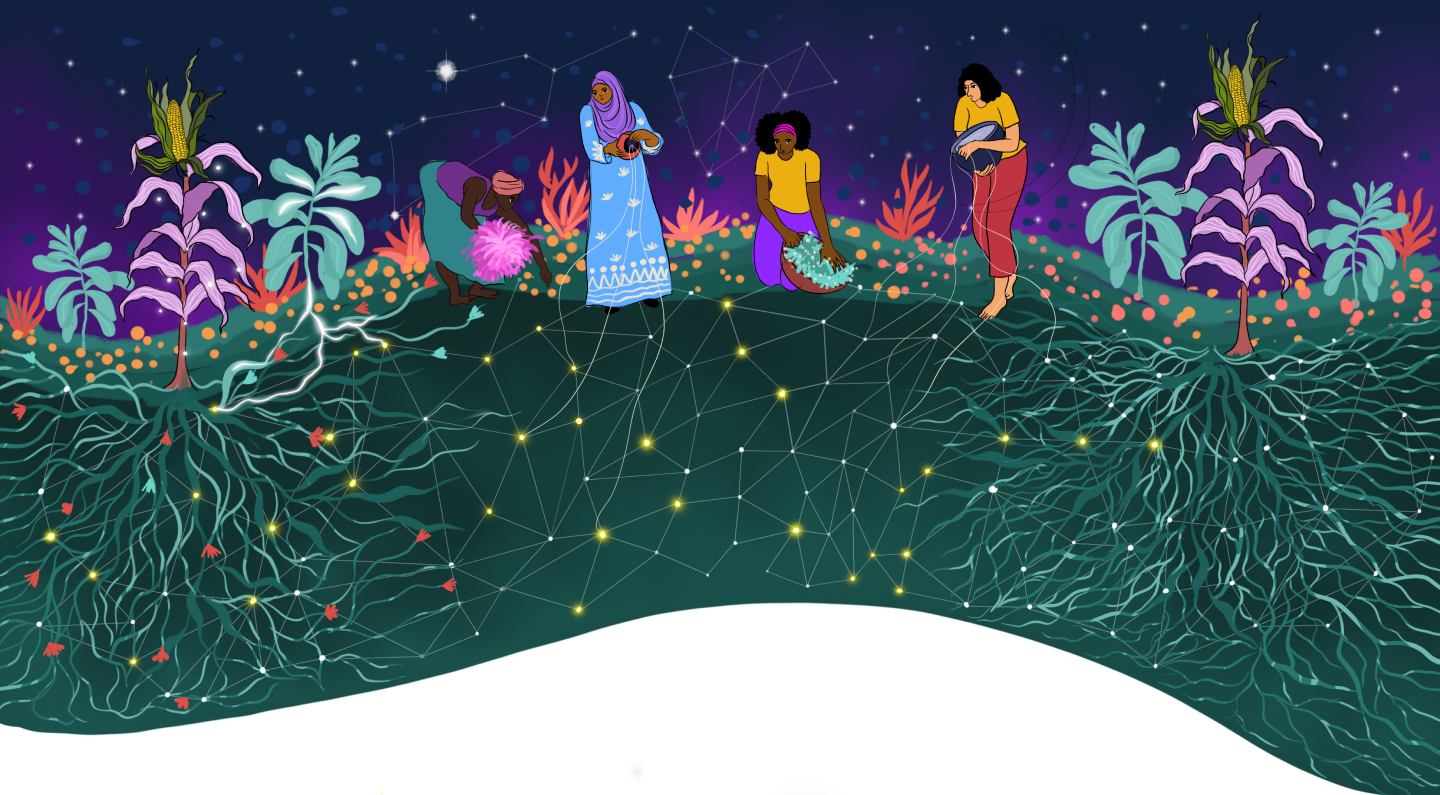WHRDIC Herstory and Impact
In 2005 many of the women human rights advocates and activists who went on to form the WHRDIC came together for a powerful consultation in Sri Lanka. They created a Women Human Rights Defenders International Committee, and this Committee was formalised as WHRDIC in March 2008.
Since then, the WHRDIC has made impressive progress directly with Women Human Rights Defenders (WHRDs), in the broader human rights movement, and at the United Nations level.
We have been instrumental in creating an identity category – Women Human Rights Defender, or WHRD – that activists find legitimising and empowering.

Before we formed the Coalition there was little public understanding of the unique risks facing WHRDs, even in human rights circles. The Coalition has increased national and international recognition of women human rights defenders and their work.
The WHRDIC played a key role in creating and uplifting critical analysis about WHRD experiences in social movements and within international and regional human rights systems.
We have been at the forefront of giving life to the UN Declaration on human rights defenders; our contributions have changed the landscape of how human rights defenders, and specifically WHRDs, are seen and understood.
We have published groundbreaking materials based on WHRDs’ lived experiences and influenced individual activists, government and UN policy makers, and NGO programming. Our ideas have been catalysts for centering gender in the HRD political universe; our actions have helped create a global WHRD community.
Several of such materials are:
- The Global Report on the Situation of Women Human Rights Defenders, which has played a crucial part in advancing the recognition of WHRDs,
- Claiming Rights, Claiming Justice: A Guidebook on Women Human Rights Defenders which helps WHRDs name the specific risks they face in their work and has been used by many organisations to keep a gender perspective in their monitoring of human rights,
- Our Right To Safety: Women Human Rights Defenders’ Holistic Approach to Protection, which has a strong focus on protection initiatives put in place by the State as well as regional and international multilateral institutions,
- Gendering Documentation: A Manual For and About Women Human Rights Defenders which provides a unique tool for capturing the specific nature of violations against WHRDs.
Through the Coalition, WHRDs around the world find solidarity, support, collaboration and the sharing of information and resources. Organisations supported by the Coalition have adopted the WHRDs framework, and networks of WHRDs have been created in a number of countries.
Our work has led to systematic monitoring of WHRDs situation, and mechanisms protecting the rights of HRDs at the national, regional and international levels. Some of these pay special attention to gender issues and to the gender dimensions of the WHRDs. A crucial area of work for the WHRDIC is building solidarity among member organizations and leveraging the resources and expertise of the diverse membership to provide a collective response to urgent situations. This work takes place among all Coalition members.

One of the most significant victories achieved by the Coalition, in collaboration with HRDs and organisations around the world, was the historic 2013 UN General Assembly resolution, ‘Protecting Women Human Rights Defenders’.
This resolution acknowledged both the work of WHRDs as well as the specific threats against them. It called on States to protect WHRDs and underlined the need to address the stereotypes and customs underlying violence against WHRDs.
We have raised public awareness of WHRDs through organising events such as at the annual session of the UN Commission on the Status of Women.
The International Women Human Rights Defenders Day – 29 November – is another of our successes. This day was decreed by the Women Human Rights Defenders International Committee, the precursor to WHRDIC, and first marked around the world in 2006.
The International Women Human Rights Defenders Day is commemorated around the world each year, through street protests, public events, speeches and mainstream media coverage, publicly highlighting the need for protection of WHRDs.

